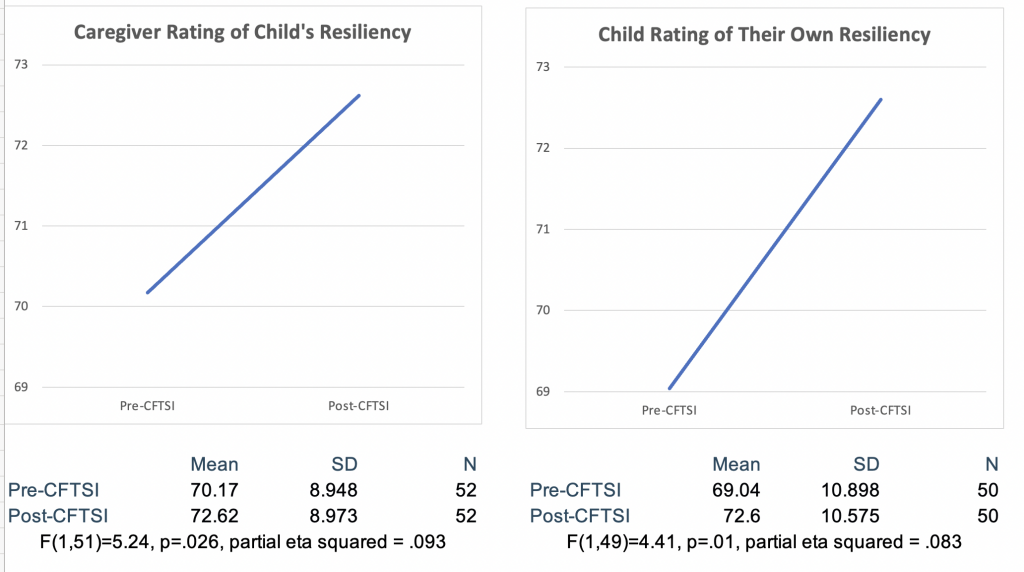CFTSI does not specifically address suicidal ideation. If the topic does come up in therapy, our clinicians are trained to assess for the likelihood of self-harm and will take immediate action to keep clients safe whenever necessary.
That being said, Project CONTACT is actively tracking clients’ resiliency, a key protective factor. Historically, researchers have focused on risk factors associated with suicidal behavior. But there is a growing awareness that it’s equally, if not more important to also focus on protective factors. Resilience is the capacity to overcome stress and adversity while maintaining normal psychological and physical functioning (Sher, 2019). In a recent manuscript, Robinson et al. (2022) argue that for suicide prevention programs to be successful, particularly with African American youth, it is important to focus on aspects of resiliency.
Here at Project CONTACT, we’re actively assessing our clients’ resiliency. Our outcomes are positive, with both caregiver’s ratings of their children, and children themselves, both demonstrating significant gains in resiliency after participating in CFTSI.

Robinson, W. L., Whipple, C. R., Keenan, K., Flack, C. E., & Wingate, L. (2022). Suicide in African American adolescents: Understanding risk by studying resilience. Annual Review of Clinical Psychology, 18, 359–385. https://doi-org.ezproxy.umsl.edu/10.1146/annurev-clinpsy-072220-021819
Sher, L. (2019). Resilience as a focus of suicide research and prevention. Acta Psychiatrica Scandinavica, 140(2), 169–180. https://doi-org.ezproxy.umsl.edu/10.1111/acps.1305

